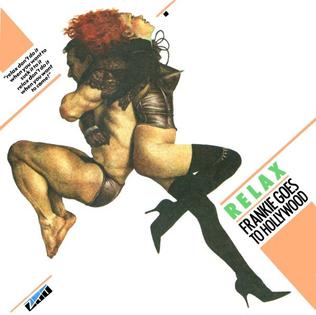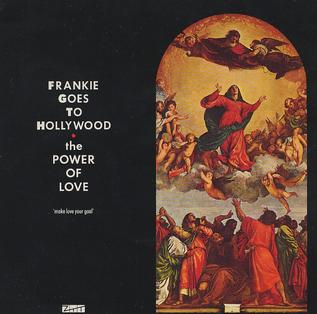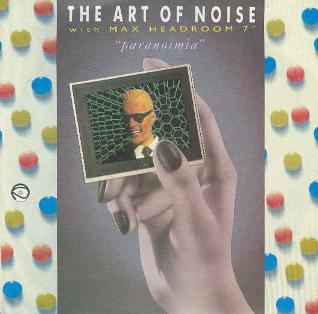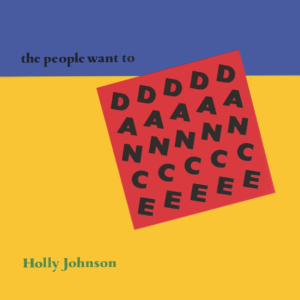
"Relax" is the debut single by English synth-pop band Frankie Goes to Hollywood, released in the United Kingdom by ZTT Records in 1983.

"Welcome to the Pleasuredome" is the title track to the 1984 debut album by English pop band Frankie Goes to Hollywood. The lyrics of the song were inspired by the poem Kubla Khan by Samuel Taylor Coleridge.
ZTT Records is a British record label founded in 1983 by the record producer Trevor Horn, the businesswoman Jill Sinclair and the NME journalist Paul Morley. They released music by acts including Frankie Goes to Hollywood, Grace Jones, the Art of Noise and Seal.

William Holly Johnson is an English artist, musician, and writer, best known as the lead vocalist of Frankie Goes to Hollywood, who achieved huge commercial success in the mid-1980s. Prior to that, in the late 1970s he was a bassist for the band Big in Japan. In 1989, Johnson's debut solo album, Blast, reached number one in the UK albums chart. Two singles from the album – "Love Train" and "Americanos" – reached the top 5 of the UK Singles Chart. In the 1990s, he also embarked on writing, painting, and printmaking careers.

"The Power of Love" is a song originally recorded and released by British band Frankie Goes to Hollywood. It was written by Holly Johnson, Peter Gill, Mark O'Toole and Brian Nash, four of the five members of the band. It was released by the group as their third single.

"Warriors of the Wasteland" is the sixth single by English pop band Frankie Goes to Hollywood, released on 10 November 1986. It was taken from the album Liverpool.

In Visible Silence is the second studio album by the English avant-garde synth-pop group Art of Noise in April 1986, and the first created by members Anne Dudley, J. J. Jeczalik and Gary Langan in the wake of their departure from ZTT Records that had been the home of the group's genesis.

"Paranoimia" is a song by the English synth-pop group Art of Noise, released in April 1986 from their second studio album, In Visible Silence (1986). The song's better-known version was a version released as a single, featuring television character Max Headroom on vocals. This version was first included on the 1986 album Re-Works of Art of Noise.

"Americanos" is a song by English singer Holly Johnson, released in 1989 as the second single from his debut solo album, Blast (1989). It was written by Johnson, and produced by Andy Richards and Steve Lovell, with additional production from Dan Hartman.

"One in Ten" is a song by British reggae band UB40, released in July 1981 as a single from their second album Present Arms. It became the band's fourth top-ten hit, peaking at number seven on the UK Singles Chart.

"Love Train" is a song by English singer Holly Johnson, released in 1989 as the lead single from his debut solo album, Blast (1989). It was written by Johnson and produced by Andy Richards and Steve Lovell with additional production by Stephen Hague. The song reached No. 4 in the United Kingdom, spending 11 weeks on the chart, and was certified silver by British Phonographic Industry (BPI) in February 1989. In the United States, the song reached No. 65 on the Billboard Hot 100.

"Atomic City" is a song by English singer Holly Johnson, released in 1989 as the third single from his debut solo album Blast. It was written by Johnson and Dan Hartman, and produced by Hartman. The song reached number 18 in the UK Singles Chart and remained in the top 100 for four weeks. A music video was filmed to promote the single, directed by Colin Chilvers and produced by Nick Verden for Radar Films.

"Across the Universe" is a song by British singer-songwriter Holly Johnson, which was released in 1991 as the second single from his second studio album Dreams That Money Can't Buy. The song was written by Johnson and produced by Andy Richards. "Across the Universe" reached No. 99 in the UK Singles Chart. The single was released with the non-LP track "Funky Paradise" as the B-side.

"Where Has Love Gone?" is a song by British singer-songwriter Holly Johnson, released in 1990 as the lead single from his second studio album Dreams That Money Can't Buy (1991). The song was written by Johnson and produced by Andy Richards.

Dreams That Money Can't Buy is the second solo album by English singer Holly Johnson, released by MCA Records in 1991. The album was produced by Andy Richards, except "Penny Arcade" which was produced by Dan Hartman.

"The People Want to Dance" is a single from former Frankie Goes to Hollywood singer Holly Johnson, taken as the third and final single from his 1991 album Dreams That Money Can't Buy. The track would be Johnson's last release until 1994.

"Disco Heaven" is a song from former Frankie Goes to Hollywood singer Holly Johnson, which was released in 1999 as the second single from his third studio album Soulstream. The song, written and produced by Johnson, reached No. 85 in the UK Singles Chart.

"Legendary Children (All of Them Queer)" is a song by former Frankie Goes to Hollywood singer Holly Johnson, which was released in 1994 by Club Tools as a non-album single. The song was written by Holly Johnson (lyrics and music) and Nick Bagnall (music). It peaked at No. 85 on the UK Singles Chart. A re-recording of "Legendary Children" was later included on Johnson's third studio album Soulstream, released in 1999.

"Hallelujah!" is a song by former Frankie Goes to Hollywood singer Holly Johnson, which was released in 1998 as a promotional single and included on his third studio album Soulstream (1999). The song was written by Johnson and Nick Bagnall (music).

"Get Real" is the debut solo single by English singer Paul Rutherford, released in 1988 from his debut solo album Oh World. A collaboration with ABC, the song was written by Rutherford, Martin Fry, Mark White and David Clayton, and produced by White and Fry. "Get Real" reached No. 47 in the UK and remained in the charts for four weeks. The song received an airplay ban by the BBC.



















